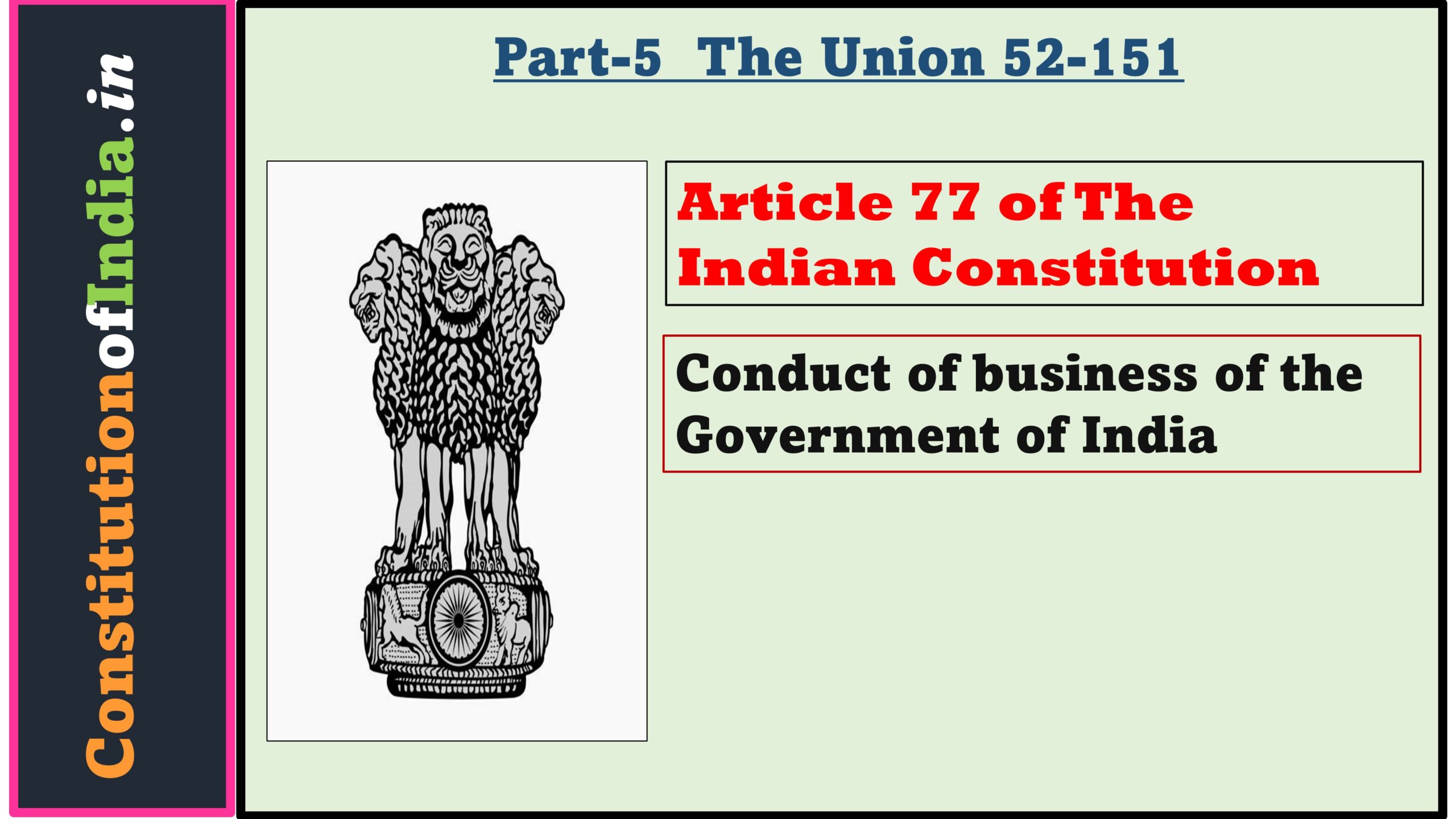Article 77 of Indian Constitution: Conduct of business of the Government of India.

Article 77 Conduct of business of the Government of India – Constitution Of India
(1) All executive action of the Government of India shall be expressed to be taken in the name of the President.
(2) Orders and other instruments made and executed in the name of the President shall be authenticated in such manner as may be specified in rules1 to be made by the President, and the validity of an order or instrument which is so authenticated shall not be called in question on the ground that it is not an order or instrument made or executed by the President.
(3) The President shall make rules for the more convenient transaction of the business of the Government of India, and for the allocation among Ministers of the said business.
Summary of Article 77 Conduct of business of the Government of India

Explanation of Article 77 of Indian Constitution using example
For instance, when the government formulates a new policy or issues an order, it must be expressly stated to be done in the name of the president. Additionally, any official documents pertaining to these actions must undergo authentication procedures as prescribed by rules established by the president. Furthermore, Article 77 empowers the president to formulate regulations for the effective conduct of the government’s business and the allocation of responsibilities among ministers. This article ensures that the government operates within the framework of presidential authority and adheres to established procedural norms
FAQ on Article 77 Conduct of business of the Government of India
What is Article 77 of the Indian Constitution?
Article 77 is a part of the Indian Constitution that outlines the conduct of government business, particularly with regard to the role of the President.
What does it mean that “all executive action must be expressed to be taken in the name of the President”?
This means that any official actions or decisions of the government must be represented as if they are taken by the President, who is the ceremonial head of the government.
Why is it necessary to authenticate orders and instruments made in the name of the President?
Authentication ensures that orders and documents are genuine and legally binding. It prevents challenges to their validity on the grounds that they were not actually authorized by the President.
Can the validity of an order or instrument made in the name of the President be questioned?
No, once an order or instrument is properly authenticated, its validity cannot be challenged on the grounds that it was not made or executed by the President.
Is the President directly involved in the day-to-day decision-making of the government?
No, the President’s role is largely ceremonial. They are not directly involved in routine government decisions, but they represent the government officially.